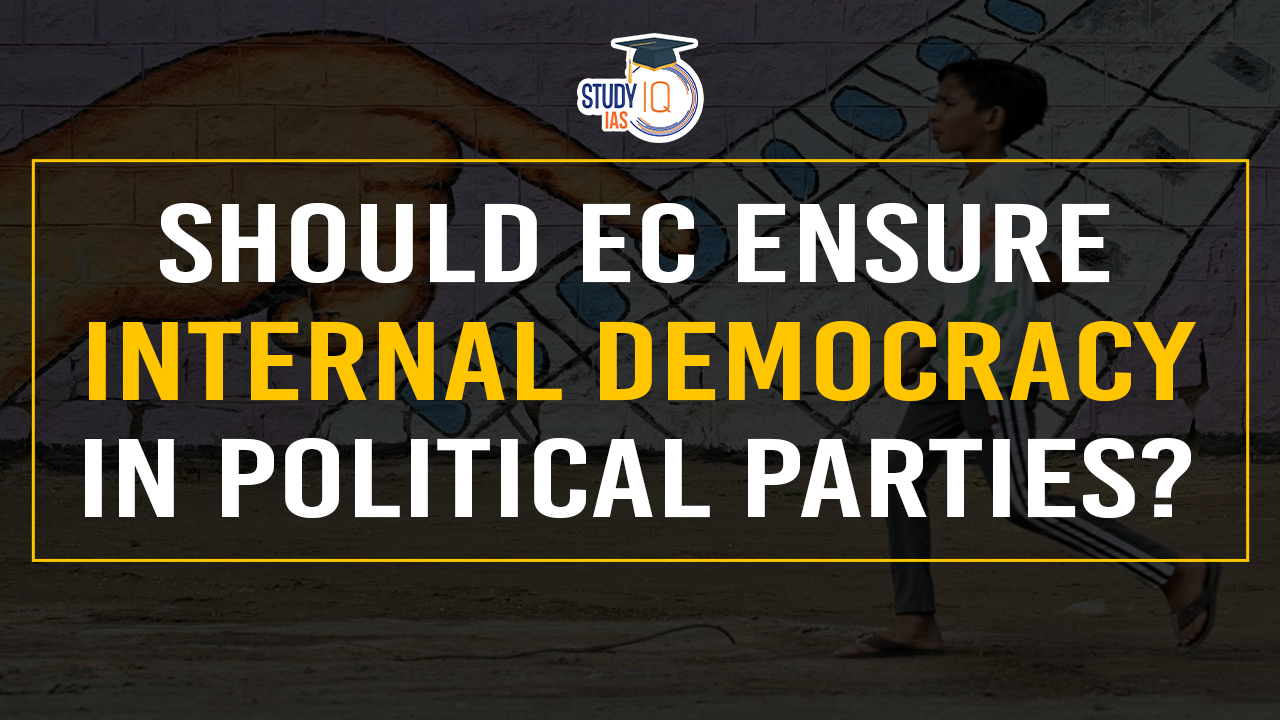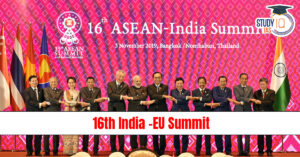Table of Contents
Role of the Election Commission
- Registration Authority: The Election Commission (EC) is responsible for registering all political parties in India and monitoring their compliance with constitutional by-laws. This includes overseeing regular elections for party office bearers.
- Mandate and Limitations: The EC’s core mandate, as defined by the Constitution, includes conducting elections for Parliament, State Legislatures, and advising on disqualifications under Article 103.
- Monitoring Compliance: The EC conducts periodic reviews to ensure that political parties adhere to their constitutions and by-laws.
- However, compliance is often described as “loose,” indicating that many parties may not fully uphold democratic structures.
Challenges Faced by the Election Commission
- Limited Power: The EC cannot de-register a party solely for not holding internal elections, which creates challenges in enforcing democratic practices within political entities.
| Fact |
| A Supreme Court ruling from 2002 restricts the EC’s power to intervene in the internal political processes of parties, limiting its ability to de-register parties for failing to conduct periodic elections unless there is evidence of fraud. |
- Political Pressure: If the EC were to regulate internal party processes, it risks becoming politicised and susceptible to external pressures, which could undermine its credibility and impartiality.
- Dominance of Personalities: Many political parties are dominated by individual leaders, leading to unopposed elections and a lack of genuine democratic engagement despite formal compliance with election laws.
- Public Perception: While the EC has maintained a high reputation for managing elections, there are concerns about its effectiveness in ensuring internal democracy within parties. This perception can affect public trust in the electoral process.
Suggestions for Improvement
- Electoral Discipline from Voters: It is suggested that the discipline within political parties should come from the electorate. If voters perceive a party as undemocratic, they should choose not to support it in elections.
- Focus on Core Responsibilities: Before expanding its mandate to regulate internal democracy, the EC should concentrate on improving its core responsibilities related to conducting free and fair elections.
- Objective Decision-Making: To maintain credibility, the EC should rely on objective measures when making decisions about party splits or disqualifications.
- Example: Counting legislative support can provide a clear basis for determining which faction retains party recognition.
- Leave Decisions to Electorate: Ultimately, it is suggested that decisions regarding internal democracy should be left to the electorate rather than imposed through regulatory measures by the EC. This respects the sovereignty of voters in a democratic society.


 16th India–EU Summit: Key Outcomes, Ag...
16th India–EU Summit: Key Outcomes, Ag...
 CERN Breakthrough: Tracking an Extremely...
CERN Breakthrough: Tracking an Extremely...
 Amendments to New Drugs and Clinical Tri...
Amendments to New Drugs and Clinical Tri...

























